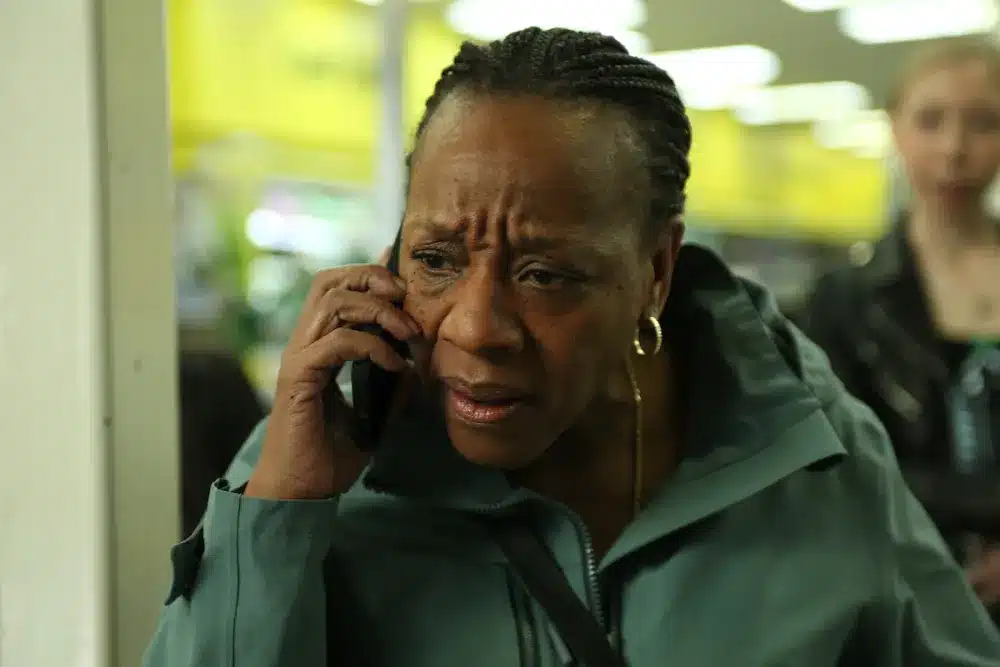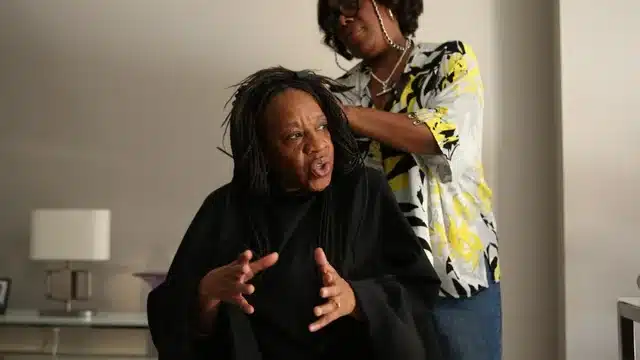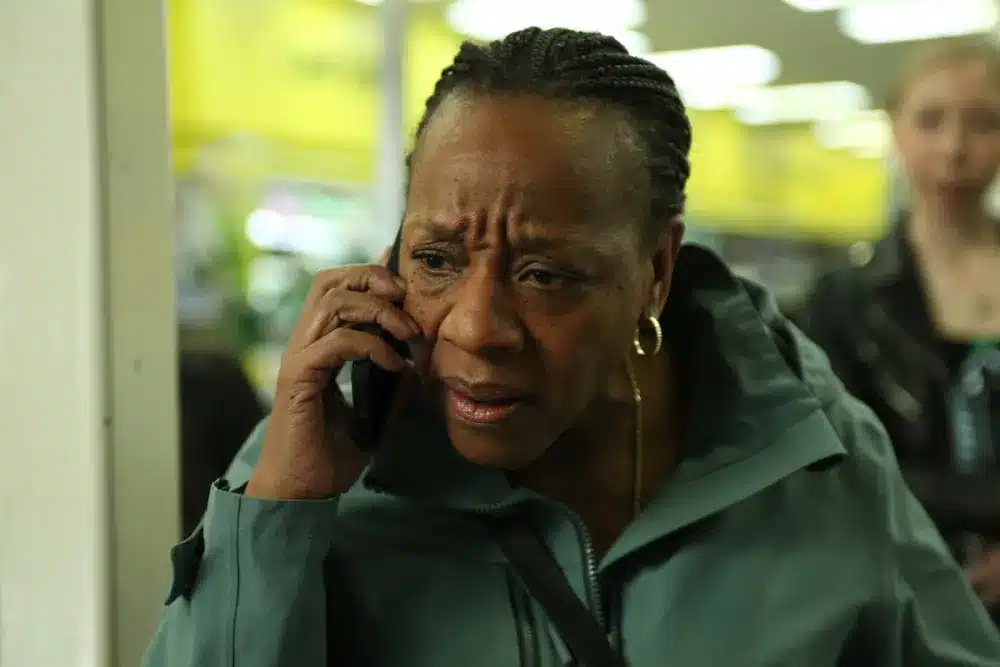
The British filmmaker’s latest is a heartfelt parable of anger and compassion, says Rafa Sales Ross.
One of the minor goddesses in Greek mythology, Lyssa is the spirit of blind rage. In classic tragedy, her stab is described as the “scorpion’s sting.” In Mike Leigh’s Hard Truths, blind rage is personified by Pansy (Marianne Jean-Baptiste), a woman whose scathing, sharp words cut much like a scorpion’s pincers, with a burning wave of pain that slowly settles into defeated numbness.
With Hard Truths, Leigh returns to contemporary London for the first time in fourteen years, having last visited the modern-day capital in 2010’s Another Year. In the decade and a half since, the renowned British director looked to the past to weave a commentary on the Britain of today—particularly with 2018’s Peterloo. The release of the historical retelling of the titular 1819 protest for the right to vote was sandwiched between a very different referendum, coming out amidst the Brexit vote in 2016 and the consolidation of the turbulent deal in 2020.
These fourteen years saw many other tragedies that have come to shape modern Britain. The Grenfell Tower fire—and state neglect— killed seventy people and bereaved hundreds more. Partygate exposed then Prime Minister Boris Johnson cheerfully holding up a can of Coke at a Parliament gathering as the country mourned the deaths of thousands of loved ones forced to leave life in complete solitude while government heads basked in the joys of unlawful camaraderie.
It is easy to understand, then, why one of the UK’s finest chroniclers would look at present Britain through the lens of great bitterness. Pansy’s unrestrained cruelty makes a lash out of her tongue. A housewife, she spends her days meticulously cleaning what looks like a newly-remodelled suburban townhouse and berating not only poor plumber husband Curtley (David Webber) and 22-year-old son Moses (Tuwaine Barrett) but everyone else who dares stumble upon her way, from unsuspecting customers by a supermarket till to a pair of loved up youngsters cuddling at a sofa store. Happiness only seeps through the cracks of her hermetically sealed life when Leigh turns to hairdresser sister Chantelle (a brilliant Michele Austin), whose well-humoured clients and two loving, accomplished adult daughters make up the ying to Pansy’s pungent yang.

There’s a certain comicality to Pansy’s meticulously crafted insults, from “Your balls are so backed up you’ve got sperm in your brain!” to “You shut yourself up with a burger, you look like a piece of string!”, but Leigh never allows Hard Truths to step into the pantomime. In fact, the tension is so unmovable at times it becomes almost mirror—held in front of the viewer as if inspecting any sly trace of laughter and therefore burying it before it surfaces. It is this very sustained tension, unbudging even when Pansy is at her most vulnerable, that crowns Jean-Baptiste’s furious, unwavering lead turn.
The actress’s reunion with Leigh comes almost three decades after Secrets & Lies earned her a Best Supporting Actress Oscar nomination (the first-ever Black British actress to do so) and helped launch her career. Pansy is a much different character from the elegant, soft-spoken Hortense, but Leigh meets both women at a similar point in their lives, finding them as they struggle to loosen the tight knots left by the loss of a mother. “There’s nothing rational about grief,” Hortense says in the 1996 film, going on to elucidate her mourning as a seesawing between vulnerability and numbness.

Pansy’s pain seems to exist in a much narrower spectrum, but this is the thing about these titular hard truths—they linger, floating in this narrow space between loudness and silence, void of resolute clarity but drenched in the elusive kind of empathy that bubbles from deep within the bowels, nestled at the core of one’s humanity. That Leigh so brilliantly permeates his parable of anger with such heartfelt compassion feels miraculous, as does Jean-Baptiste’s titanic grasp on the tightness of grief.





